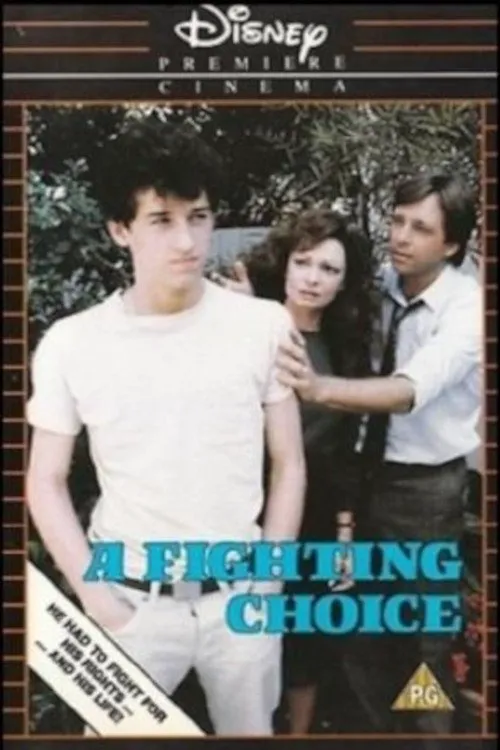A Fighting Choice

あらすじ
A Fighting Choice follows the poignant journey of a bright and determined teenage boy struggling to manage his epilepsy. He is not your ordinary teenager; his life is disrupted by the unpredictable occurrence of seizures, which pose a significant challenge to his academic and social pursuits. Despite his best efforts to stay in control, the constant threat of seizures hangs over him, casting a dark shadow on his future. The teenage boy, driven by his unwavering desire to pursue his dreams, decides to take a bold and radical step. He sues his parents for the right to undergo a highly experimental and potentially life-changing surgery known as "split brain" surgery. This surgical procedure, still in its infancy, promises to potentially cure his epilepsy but comes with its own set of risks and uncertainties. As the lawsuit unfolds, the teenage boy navigates the complexities of the judicial system, confronting his parents, medical professionals, and fellow teenagers who struggle with epilepsy. Throughout this emotional rollercoaster, the boy must rely on his intelligence, resilience, and determination to advocate for himself and his future. The film takes a deep dive into the intricacies of epilepsy, shedding light on the emotional and psychological toll it takes on those affected. Through the boy's journey, viewers are introduced to the often-overlooked struggles of living with a neurological disorder, which affect not only the individual but also their loved ones. The portrayal of the boy's relationships with his parents and peers serves as a testament to the unwavering love, support, and perseverance that people with epilepsy often face. The film also presents a thought-provoking exploration of the ethics surrounding medical treatment and the rights of individuals. The lawsuit raises critical questions about personal autonomy, informed consent, and the role of parents in making decisions on behalf of their children. These themes serve as a springboard for a broader discussion about the societal obligations towards individuals with disabilities and the responsibility to accommodate their needs. The cast, comprising a talented ensemble of actors, brings depth and authenticity to their respective roles. Each character, whether a teenager, a medical professional, or a parent, undergoes a transformation as they grapple with the complexities of epilepsy and the potential consequences of the split brain surgery. The portrayal of the boy's struggles and triumphs serves as a poignant reminder of the importance of compassion, understanding, and empathy in supporting those affected by neurological disorders. Throughout the narrative, the film balances the boy's emotional and psychological journey with the medical and scientific context of the split brain surgery. The medical professionals who treat the boy, including his neurosurgeon and psychologist, provide nuanced insights into the treatment options available and the risks associated with the surgery. The portrayal of the medical establishment's responses to the boy's pleas for help underscores the often-cold and bureaucratic nature of the healthcare system and its impact on those seeking medical attention. A Fighting Choice culminates in a heart-wrenching climax that raises more questions than it answers. The film concludes on a hopeful note, as the boy, having undergone the surgery, embarks on a new journey of self-discovery, growth, and resilience. The film ends with a sense of uncertainty and optimism, leaving the viewer with a newfound appreciation for the strength and determination required to overcome even the most daunting medical challenges. Ultimately, A Fighting Choice is a powerful exploration of the human spirit's capacity to overcome adversity, the importance of empathy and compassion, and the ongoing struggle to find balance between personal autonomy and the desire to protect and care for those who are vulnerable. The film leaves an indelible mark on the viewer's consciousness, serving as a poignant reminder of the complexities of epilepsy, the need for informed consent, and the importance of advocating for those who are often marginalized and overlooked.
レビュー
おすすめ


